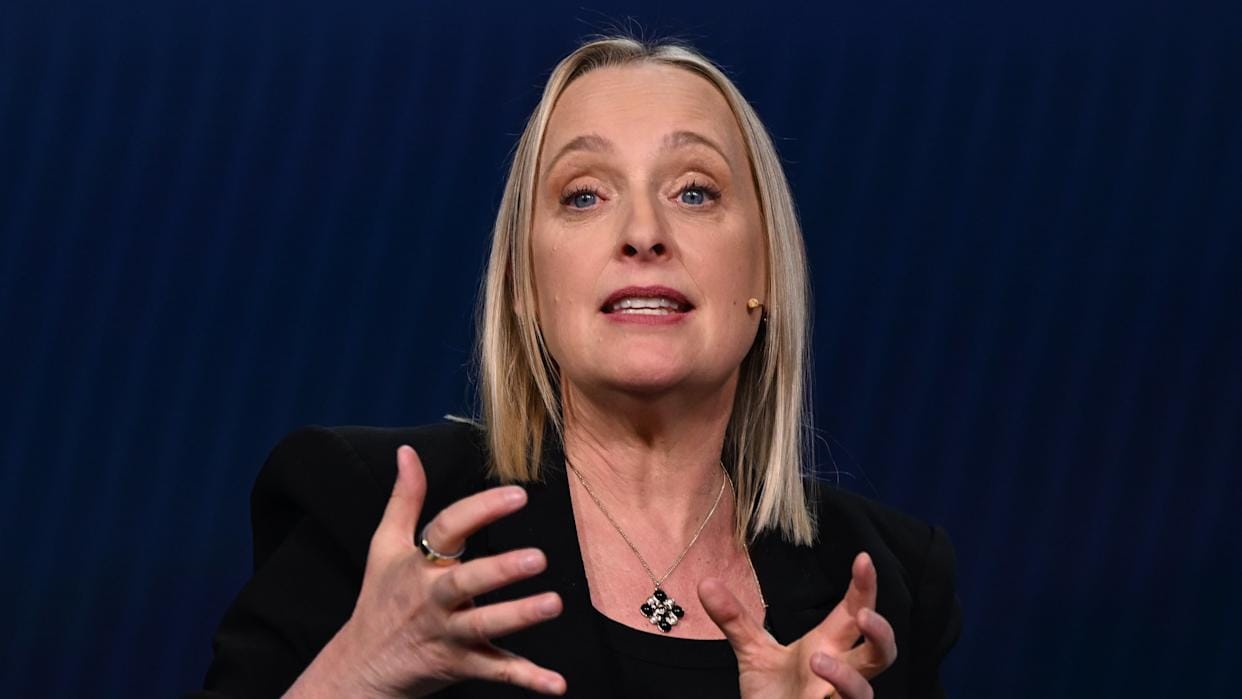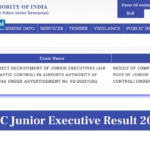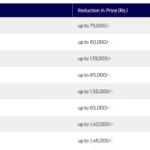In today’s fast-changing corporate landscape, leaders must balance agility, innovation, and responsibility. Few embody this balance as effectively as Julie Sweet, the Chair and CEO of Accenture, one of the world’s largest professional services companies. Since taking over as CEO in 2019 and later as Chair in 2021, Sweet has steered Accenture into an era defined by digital reinvention, responsible business practices, and inclusive leadership.
Ranked consistently among the world’s most powerful women by Forbes and Fortune, Julie Sweet has become a role model not just for aspiring executives, but for anyone interested in how technology, leadership, and values intersect. This blog explores her early journey, her rise at Accenture, and her impact on global business.
1. Early Life and Education
Julie Sweet was born in 1967 in Tustin, California. From an early age, she displayed strong communication and analytical skills, excelling in debate competitions during her school years. These formative experiences helped her develop the confidence and persuasion skills that would later prove vital in her corporate career.
Sweet went on to study at Claremont McKenna College, where she graduated with honors in international affairs. She later earned her Juris Doctor from Columbia Law School, setting the stage for a distinguished career in law before making the shift into corporate leadership.
2. From Law to Business: Building a Strong Foundation
Before joining Accenture, Sweet worked as a partner at the prestigious law firm Cravath, Swaine & Moore LLP, where she specialized in corporate law. During her tenure, she advised leading multinational companies on mergers, acquisitions, and governance.
This legal background gave her:
- A deep understanding of corporate structures and compliance
- Expertise in navigating complex global regulations
- Skills in risk management and strategic decision-making
Her legal career also sharpened her ability to negotiate, analyze, and lead in high-stakes environments—capabilities that would define her leadership at Accenture.
3. Joining Accenture: A Strategic Shift
In 2010, Julie Sweet joined Accenture as General Counsel, Secretary, and Chief Compliance Officer. This was a significant career pivot, moving from legal advisory to an operational leadership role in one of the world’s biggest consulting and technology firms.
Her appointment was considered bold at the time, but Sweet quickly proved her worth. She implemented strong governance practices, modernized legal functions, and played a key role in supporting Accenture’s expansion into new digital and technology domains.
4. Rise to CEO
By 2015, Sweet had moved into a more business-focused role as CEO of Accenture’s North America business, the company’s largest market. Under her leadership, this division witnessed significant growth, driven by investments in digital transformation and innovation services.
In 2019, she was appointed CEO of Accenture, becoming one of the few women to lead a Fortune Global 500 company. Two years later, in 2021, she was named Chair of the Board, cementing her position as the key architect of Accenture’s global strategy.
5. Accenture Under Julie Sweet’s Leadership
Since taking over as CEO, Julie Sweet has focused on three major priorities:
a) Embracing Digital Transformation
Sweet accelerated Accenture’s push into areas like cloud computing, artificial intelligence, cybersecurity, and data analytics. Through the Cloud First initiative, Accenture committed billions of dollars to help clients modernize operations.
b) Responsible Business Leadership
Sweet has consistently emphasized that business must be responsible as well as profitable. Under her leadership, Accenture has strengthened commitments to:
- Sustainability – aiming for net-zero emissions by 2025
- Diversity and inclusion – with goals for gender-balanced workforces and greater representation of underrepresented groups
- Ethical AI and digital responsibility
c) Client-Centric Growth
Accenture under Sweet has focused on deepening client relationships by providing end-to-end solutions that combine consulting, technology, and managed services. This integrated model has been crucial in helping clients navigate post-pandemic business challenges.
6. Key Achievements
Some of Julie Sweet’s notable achievements include:
- Revenue Growth: Under her leadership, Accenture’s revenues surpassed $64 billion in FY2023, reflecting the company’s strong position in digital services.
- Sustainability Leadership: Recognized globally for pioneering sustainability reporting and committing to science-based targets.
- Workforce Transformation: Advocated for continuous learning, ensuring Accenture employees are equipped with skills for the digital age.
- Industry Recognition: Named one of the “Top 100 Most Powerful Women” by Forbes and consistently ranked in Fortune’s “Most Powerful Women in Business” list.
7. Leadership Style
Julie Sweet’s leadership style is often described as empathetic, inclusive, and future-focused. She emphasizes listening to employees, empowering teams, and fostering innovation.
Key traits that define her approach include:
- Clarity in communication – simplifying complex challenges for employees and clients alike.
- Commitment to diversity – driving initiatives that ensure opportunities for women and minorities in tech.
- Visionary thinking – anticipating trends such as generative AI and preparing Accenture to lead in these spaces.
8. Women in Leadership: Breaking Barriers
Julie Sweet’s role as CEO of Accenture carries symbolic importance in addition to business impact. In industries historically dominated by men, she has broken barriers and inspired women globally to pursue leadership roles.
She is a strong advocate for:
- Gender equality in the workplace
- Mentorship programs for women leaders
- Policies that support work-life integration
Her story demonstrates that leadership is not defined by gender, but by vision, resilience, and capability.
9. Navigating Challenges
No leadership journey is without challenges. Julie Sweet has had to navigate:
- The COVID-19 pandemic, which forced Accenture to adapt rapidly to remote work and digital-first client interactions.
- Global economic uncertainty, requiring careful cost management while still investing in innovation.
- Talent wars in technology, where retaining and upskilling employees has been as critical as client acquisition.
Her success in overcoming these challenges reflects her ability to balance short-term resilience with long-term strategy.
10. Looking Ahead: Accenture’s Future Under Sweet
Julie Sweet envisions Accenture as a company that not only delivers digital transformation but also shapes the future of responsible business. Her strategy revolves around:
- Leveraging artificial intelligence and generative AI for clients
- Expanding cloud-first solutions
- Strengthening sustainability practices across industries
- Fostering a culture of continuous innovation within Accenture’s 700,000+ employees
She has described Accenture as a company “in the business of change,” positioning it as a trusted partner for global enterprises navigating disruption.
11. Lessons from Julie Sweet’s Journey
Julie Sweet’s career offers several lessons for professionals:
- Embrace Change – Moving from law to corporate leadership was unconventional, but it opened doors to greater impact.
- Lead with Values – Profit and responsibility must go hand in hand.
- Invest in People – A company’s long-term success depends on empowering its workforce.
- Stay Future-Ready – Anticipating technological shifts is critical in today’s business environment.
Conclusion: A Leader for the Times
Julie Sweet has redefined what it means to be a 21st-century CEO. By combining business acumen with social responsibility, she has positioned Accenture as both a global leader in digital services and a role model in corporate citizenship.
Her journey—from a lawyer in California to one of the most powerful executives in the world—reminds us that leadership is about more than titles or positions. It’s about vision, resilience, and the courage to drive meaningful change.
As Accenture continues its mission to reinvent businesses for the future, Julie Sweet stands as a shining example of how strong, values-driven leadership can shape not only companies but also entire industries.










